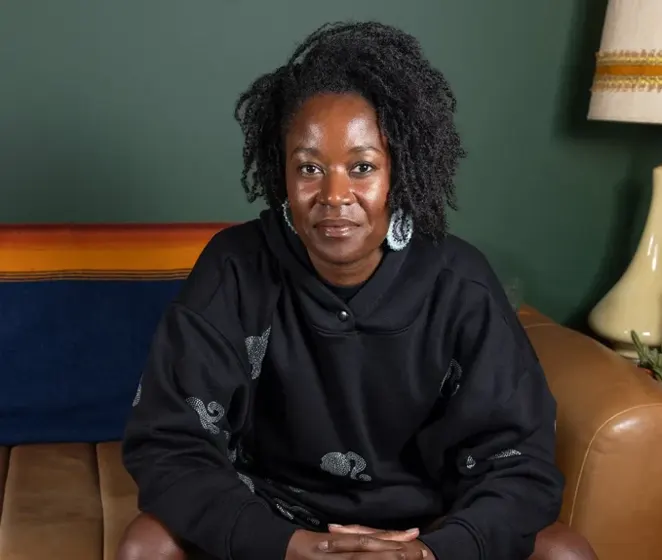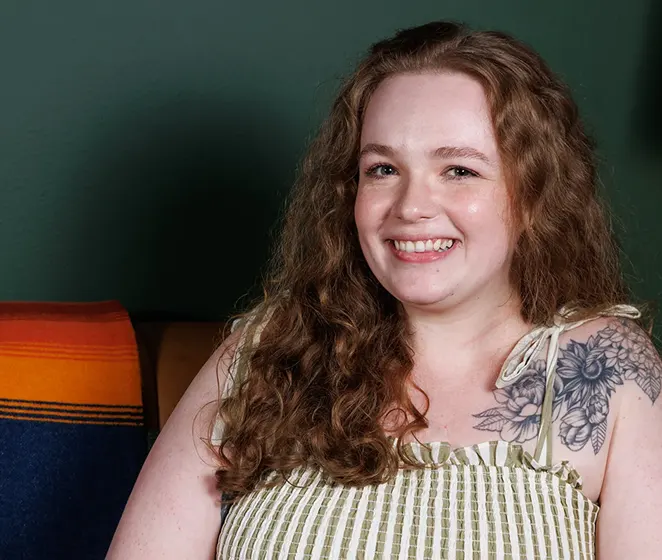by Intentional Spaces Psychotherapy
Parenting is never simple, and for many caregivers, it can feel like a constant balancing act between meeting the needs of your child and keeping the household running. When your child has ADHD, that balance can feel even more precarious. Parenting a child with ADHD often means navigating a world that is full of contradictions. Your child may be endlessly curious, imaginative, and energetic, yet daily routines that seem simple for other families, like getting dressed, finishing homework, or sitting through dinner, can feel like uphill battles. Some days may end with laughter and pride, while others end in exhaustion, frustration, or guilt.
Parenting is never simple, and for many caregivers, it can feel like a constant balancing act between meeting the needs of your child and keeping the household running. When your child has ADHD, that balance can feel even more precarious. Parenting a child with ADHD often means navigating a world that is full of contradictions. Your child may be endlessly curious, imaginative, and energetic, yet daily routines that seem simple for other families, like getting dressed, finishing homework, or sitting through dinner, can feel like uphill battles. Some days may end with laughter and pride, while others end in exhaustion, frustration, or guilt.
Why Parenting a Child With ADHD Feels Different
Parenting a child with ADHD often requires a fundamental shift in perspective. Many parents go into parenthood expecting that common strategies, such as traditional discipline methods or the same routines used by other families, will work for their children as well. But when ADHD is in the picture, those strategies often fall short. Traditional approaches like strict consequences or repeated reminders can create more tension rather than more cooperation. This is not because the child is unwilling or stubborn, but because their brain processes information, impulses, and emotions differently.
Instead of assuming your child is deliberately choosing not to listen, it helps to recognize that they may be genuinely struggling to hold instructions in their working memory or to regulate their impulses in the moment. Something as simple as cleaning their room may feel overwhelming because breaking a task into smaller steps does not come naturally. Emotional responses that seem disproportionate may actually reflect their nervous system working overtime. When you see their behaviors through this compassionate lens, the focus shifts away from control and toward support. This shift allows you to move from a place of frustration to one of understanding, making space for more effective problem-solving.
Shifting perspective does not mean lowering expectations or letting go of boundaries. Instead, it means tailoring the environment so your child can succeed with the brain they have, rather than expecting them to fit into a mold that was not designed for them. This can be one of the hardest but most liberating parts of parenting a child with ADHD: realizing that success looks different, but that different does not mean less.
Common Struggles Parents Face
Parents of children with ADHD often describe their daily lives as unpredictable. The day can begin smoothly and then suddenly veer off course over something as small as a misplaced shoe or a homework assignment. These swings between calm and chaos can feel overwhelming, especially when they seem to happen without warning.
Some of the most common challenges include:
- Morning and bedtime routines that stretch into hours because transitions are difficult, and your child struggles to shift from one activity to another.
- Homework battles, where distraction, frustration, or avoidance derail even the best intentions, leaving you feeling like you spend more time negotiating than learning.
- Emotional outbursts that escalate quickly and feel disproportionate to the situation creating moments of stress for the entire family.
- Constant reminders that make you feel like you are nagging more than nurturing, which can erode your sense of connection.
- Judgment from others who do not understand ADHD and assume poor parenting is to blame, leaving you feeling misunderstood and isolated.
These struggles can be exhausting and may leave you questioning yourself as a parent. You may find yourself carrying guilt, wondering if you are doing enough or if you are somehow failing your child. The reality is that these challenges are not evidence of failure. They are signs of a different wiring in the brain that requires a different set of tools. Recognizing this truth can bring a sense of relief, because it allows you to let go of blame and instead focus on building strategies that truly fit your child.
Coping Strategies for Daily Life
There is no universal roadmap that works for every child with ADHD, but there are evidence-based coping strategies that can make daily life feel more manageable. These approaches will not erase the challenges, but they can help create more consistency, more peace, and more opportunities for success in your home.
Create Predictable Routines
Children with ADHD thrive on structure because predictability helps reduce anxiety and overwhelm. However, creating that structure can feel like an ongoing effort. One way to make routines more manageable is to break them into simple, visual steps. For example, a morning chart with pictures for brushing teeth, getting dressed, and eating breakfast provides a clear sequence that does not require repeated verbal reminders. Over time, these visual cues can give your child a greater sense of independence while reducing power struggles.
Use Positive Reinforcement Generously
Children with ADHD often receive far more corrections than compliments, and this imbalance can slowly chip away at their confidence. Positive reinforcement can restore that balance and help build self-esteem. Notice and celebrate small wins, even when they seem basic to others. Saying something like “I noticed you started your homework without me asking” or “Thank you for getting ready so quickly” acknowledges their effort and encourages them to keep trying. Shifting focus to what they are doing well helps both you and your child experience more moments of encouragement rather than discouragement.
Break Tasks Into Manageable Steps
Large tasks can feel overwhelming, especially when organization and planning are challenging. Instead of asking your child to clean their entire room, break the task into smaller steps, such as picking up clothes first, then putting books on the shelf, and finally making the bed. Offering one step at a time makes the task feel less daunting and helps your child experience progress, which can be incredibly motivating.
Build in Movement and Breaks
Many children with ADHD need frequent movement to stay regulated. Instead of viewing this as disruptive, try building movement into their daily routine. Short bursts of activity like jumping jacks, stretching, dancing, or walking the dog can reset their focus and make it easier for them to return to tasks that require attention. Allowing space for movement recognizes that their energy is not a problem to suppress, but a resource to redirect.
Practice Calm Communication
When emotions escalate, it is easy for both parent and child to become reactive. Practicing calm, clear communication can change the tone of interactions. This might mean lowering your voice, making eye contact at their level, and using fewer words to get your point across. Modeling calmness teaches your child how to self-regulate in moments of stress, and it reduces the likelihood of power struggles spiraling out of control.
Prioritize Connection Over Perfection
It can be tempting to feel like every moment must be an opportunity to teach, redirect, or correct. Yet children with ADHD, like all children, need to feel loved and accepted as they are. Making time for shared laughter, play, or simply being together strengthens your bond and provides a buffer against the inevitable challenges. Prioritizing connection over perfection helps your child feel secure and reminds you both that your relationship is about more than managing symptoms.
Taking Care of Yourself as a Parent
Parenting a child with ADHD can be deeply rewarding, but it is also undeniably demanding. The constant vigilance, the unpredictable challenges, and the emotional ups and downs can leave you feeling drained. It is easy to put your own needs last, but doing so only increases burnout.
Your well-being matters just as much as your child’s. Seeking your own support, whether through therapy, parent coaching, or community support groups, can give you perspective and help you feel less isolated. Developing coping strategies for yourself, such as mindfulness practices, journaling, physical exercise, or simply carving out quiet time in your day, can replenish the energy you need to show up for your child. Parenting is not meant to be done alone, and reaching out for help is not a weakness. It is an act of strength that benefits both you and your child.

Need support?
Parenting a child with ADHD can be deeply rewarding, but it is also undeniably demanding. The constant vigilance, the unpredictable challenges, and the emotional ups and downs can leave you feeling drained. It is easy to put your own needs last, but doing so only increases burnout.
Your well-being matters just as much as your child’s. Seeking your own support, whether through therapy, parent coaching, or community support groups, can give you perspective and help you feel less isolated. Developing coping strategies for yourself, such as mindfulness practices, journaling, physical exercise, or simply carving out quiet time in your day, can replenish the energy you need to show up for your child. Parenting is not meant to be done alone, and reaching out for help is not a weakness. It is an act of strength that benefits both you and your child.















